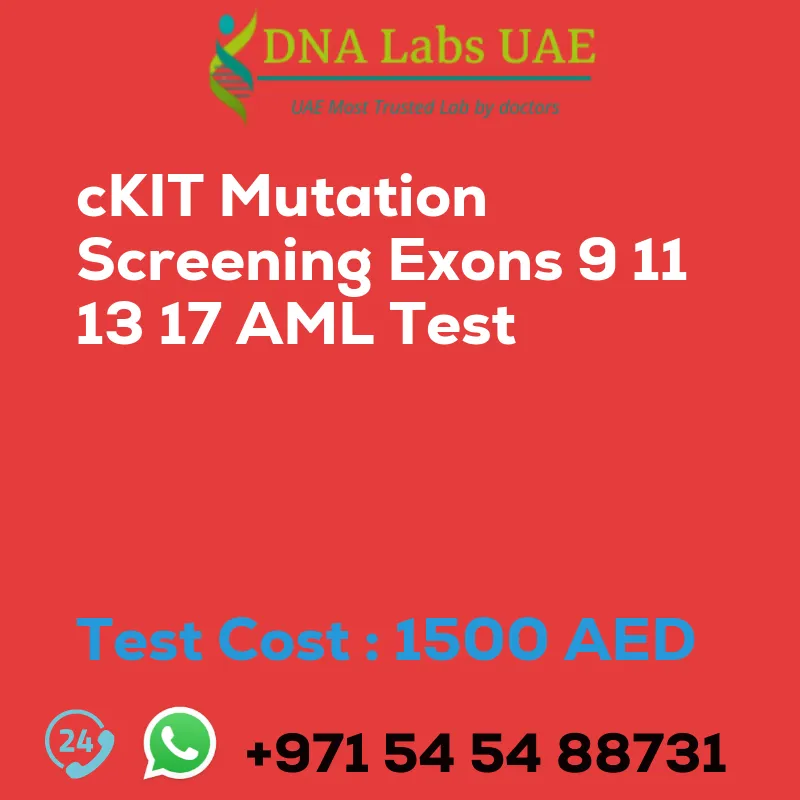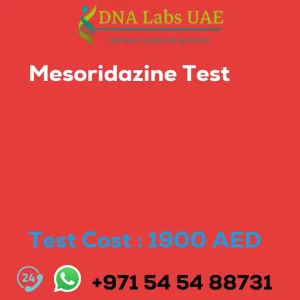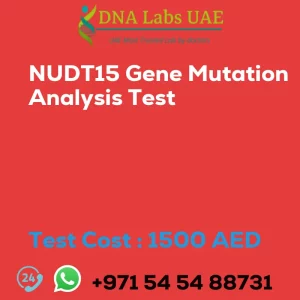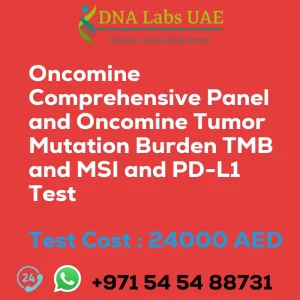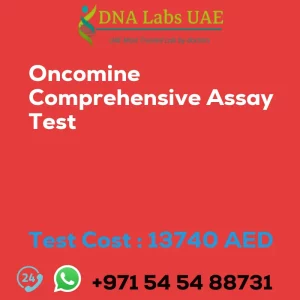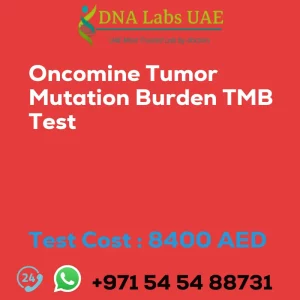cKIT Mutation Screening Exons 9 11 13 17 AML Test
Test Name: cKIT Mutation Screening Exons 9 11 13 17 AML Test
Components: EDTA Blood (2ml)
Price: 1500.0 AED
Sample Condition: Peripheral Blood
Report Delivery: 7-8 days
Method: Sanger Sequencing
Test Type: Genetics
Doctor: Gynecologist
Test Department:
Pre Test Information: cKIT Mutation Screening (Exons 9, 11, 13, 17) AML can be done with a Doctor’s prescription. Prescription is not applicable for surgery and pregnancy cases or people planning to travel abroad.
Test Details
cKIT mutation screening refers to the process of analyzing specific exons (exons 9, 11, 13, and 17) of the cKIT gene in patients with acute myeloid leukemia (AML). The cKIT gene, also known as CD117, encodes a receptor tyrosine kinase that plays a crucial role in cell growth and differentiation.
Mutations in the cKIT gene have been associated with various malignancies, including AML. These mutations can lead to abnormal activation of the cKIT receptor, resulting in uncontrolled cell proliferation and survival.
Screening for cKIT mutations in AML patients can help in several ways:
- Diagnosis: Identifying cKIT mutations can aid in confirming the diagnosis of AML and distinguishing it from other types of leukemia.
- Prognosis: Certain cKIT mutations have been linked to specific clinical outcomes in AML. For example, patients with certain cKIT mutations may have a worse prognosis or be more resistant to certain treatments.
- Treatment Selection: Some targeted therapies, such as tyrosine kinase inhibitors (TKIs), have been developed to specifically inhibit the activity of mutated cKIT receptors. Identifying cKIT mutations can help guide treatment decisions and determine if a patient is a candidate for these targeted therapies.
The specific exons analyzed in cKIT mutation screening (exons 9, 11, 13, and 17) were chosen because they are known to harbor the most common mutations in the cKIT gene associated with AML. By analyzing these exons, clinicians can detect the presence of mutations that may be relevant for diagnosis, prognosis, and treatment decisions in AML patients.
| Test Name | cKIT Mutation Screening Exons 9 11 13 17 AML Test |
|---|---|
| Components | EDTA Blood (2ml) |
| Price | 1500.0 AED |
| Sample Condition | Peripheral Blood |
| Report Delivery | 7-8 days |
| Method | Sanger Sequencing |
| Test type | Genetics |
| Doctor | Gynecologist |
| Test Department: | |
| Pre Test Information | cKIT Mutation Screening (Exons 9, 11, 13, 17) AML can be done with a Doctors prescription. Prescription is not applicable for surgery and pregnancy cases or people planing to travel abroad. |
| Test Details |
cKIT mutation screening refers to the process of analyzing specific exons (exons 9, 11, 13, and 17) of the cKIT gene in patients with acute myeloid leukemia (AML). The cKIT gene, also known as CD117, encodes a receptor tyrosine kinase that plays a crucial role in cell growth and differentiation. Mutations in the cKIT gene have been associated with various malignancies, including AML. These mutations can lead to abnormal activation of the cKIT receptor, resulting in uncontrolled cell proliferation and survival. Screening for cKIT mutations in AML patients can help in several ways: 1. Diagnosis: Identifying cKIT mutations can aid in confirming the diagnosis of AML and distinguishing it from other types of leukemia. 2. Prognosis: Certain cKIT mutations have been linked to specific clinical outcomes in AML. For example, patients with certain cKIT mutations may have a worse prognosis or be more resistant to certain treatments. 3. Treatment selection: Some targeted therapies, such as tyrosine kinase inhibitors (TKIs), have been developed to specifically inhibit the activity of mutated cKIT receptors. Identifying cKIT mutations can help guide treatment decisions and determine if a patient is a candidate for these targeted therapies. The specific exons analyzed in cKIT mutation screening (exons 9, 11, 13, and 17) were chosen because they are known to harbor the most common mutations in the cKIT gene associated with AML. By analyzing these exons, clinicians can detect the presence of mutations that may be relevant for diagnosis, prognosis, and treatment decisions in AML patients. |

